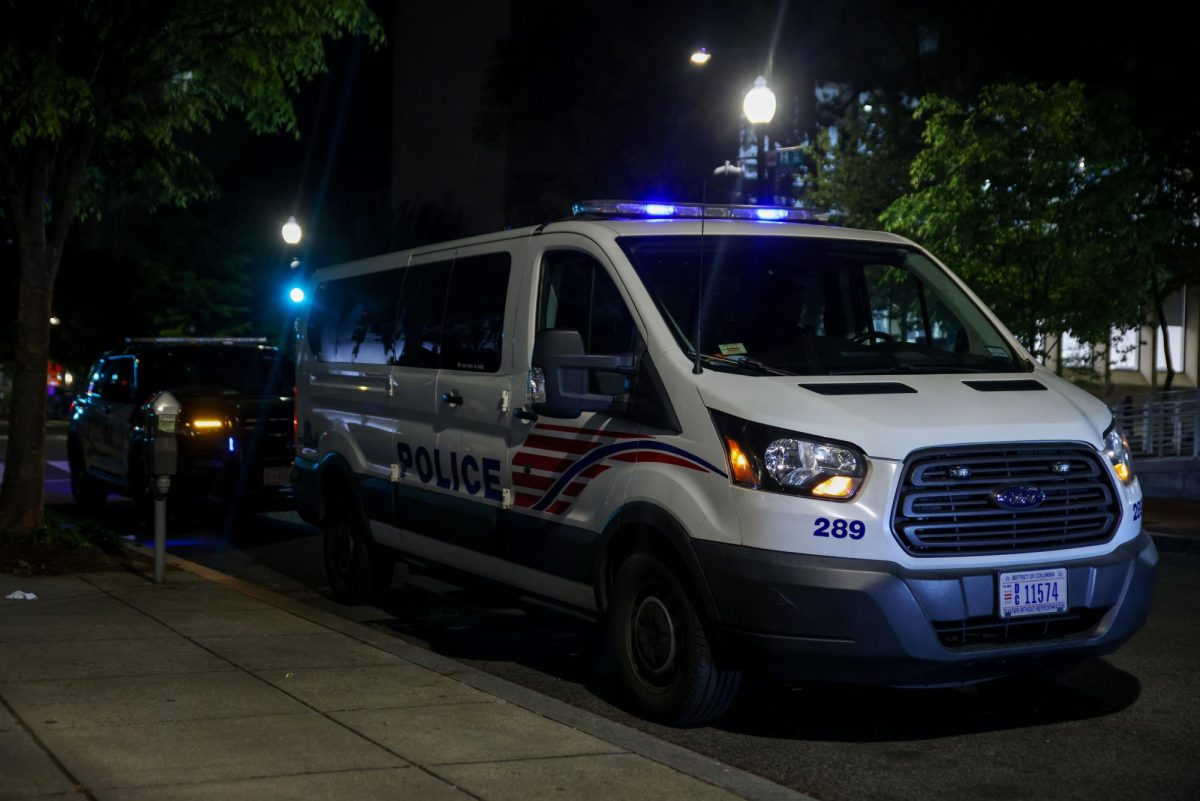After helping to train members of the FBI and writing reports for the State Department, GW professor Kathryn Newcomer is using her experience to help D.C. with another pressing issue: the city’s taxicab system.
Newcomer, who is the director of the School of Public Policy, conducted research for a slew of federal agencies, including the Department of Transportation and the Federal Emergency Management Administration. She was tasked with examining the District’s unique zone system of taxi fares, compared to the meter system of most other American cities.
Newcomer and her research assistants equipped 21 D.C. cabs with meters that printed out the expected meter price for the trip although drivers still charged zone prices. The meters operated on a rate of $2.50 base fare and $0.25 every sixth of a mile.
She presented the final results of “The Taxicab Information Project” last month; though the D.C. Taxicab Commission received the initial report in November, a few corrections were made on the final submission. The commission said it will not release the study’s findings until they make a decision on how to act on it.
The study began in October 2005 as a result of the recommendations of then-Mayor Anthony Williams’ Task Force on Taxicab Reform in 2002. The issue became more immediate last fall, when President George W. Bush signed legislation that included an amendment requiring all taxis licensed in D.C. to charge fares by a metered system on or before October 2007. The amendment, introduced by U.S. Sen. Carl Levin (D-Mich.), includes a provision allowing Mayor Adrian Fenty to opt out of the requirement for the metered system by executive order.
Fenty, in a written statement Nov. 7, said he would support whatever option was better for the citizens of D.C.
“I am committed to making sure that the taxicab system is fair and consumer-friendly, whether fares are based on the zone system or metered rates,” he said.
The Mayor’s Office contacted Newcomer to conduct the research, which has been overseen by the Office of the Deputy Mayor for Planning and Economic Development. Two graduate students in GW’s School of Public Policy helped the professor to crunch the numbers, which included more than 9,000 pieces of data collected over eight months.
Doreen Thompson, interim chair of the D.C. Taxicab Commission, said the commission has not yet reviewed the final version of the report, which it will most likely review by the end of February. She added that while the process is taking longer than expected, the delay is not intended.
“There are so many things on the Committee’s plate,” she said. “This isn’t some technique of stalling.”
What the Taxicab Commission will do with this study isn’t yet known. Thompson said the study eventually will either go before a panel or the full commission to decide the best way to utilize the findings.
This report is not the first time Newcomer has aided the District.
Newcomer also served as an expert panel member in the 2004 investigation into a drinking water scandal. The investigation’s final report determined the D.C. Water and Sewer Authority had “mishandled” water testing, resulting in unsafe levels of lead in D.C. tap water.
Although Newcomer has extensive experience in public policy research, she cites the public policy school’s high reputation as meriting D.C.’s request for assistance.
“We’re definitely a leader (in this field),” she said. “They know we have very good analytical skills both with faculty and students.”
Daniel Paepke, one of the graduate research assistants, said the study was more of a statistical analysis rather than a policy recommendation for the commission. “We just gave them the raw data that they can make decisions with,” Paepke said.
He added: “We produced a great product and used a lot of the skills we have been working on for the past two years.”







